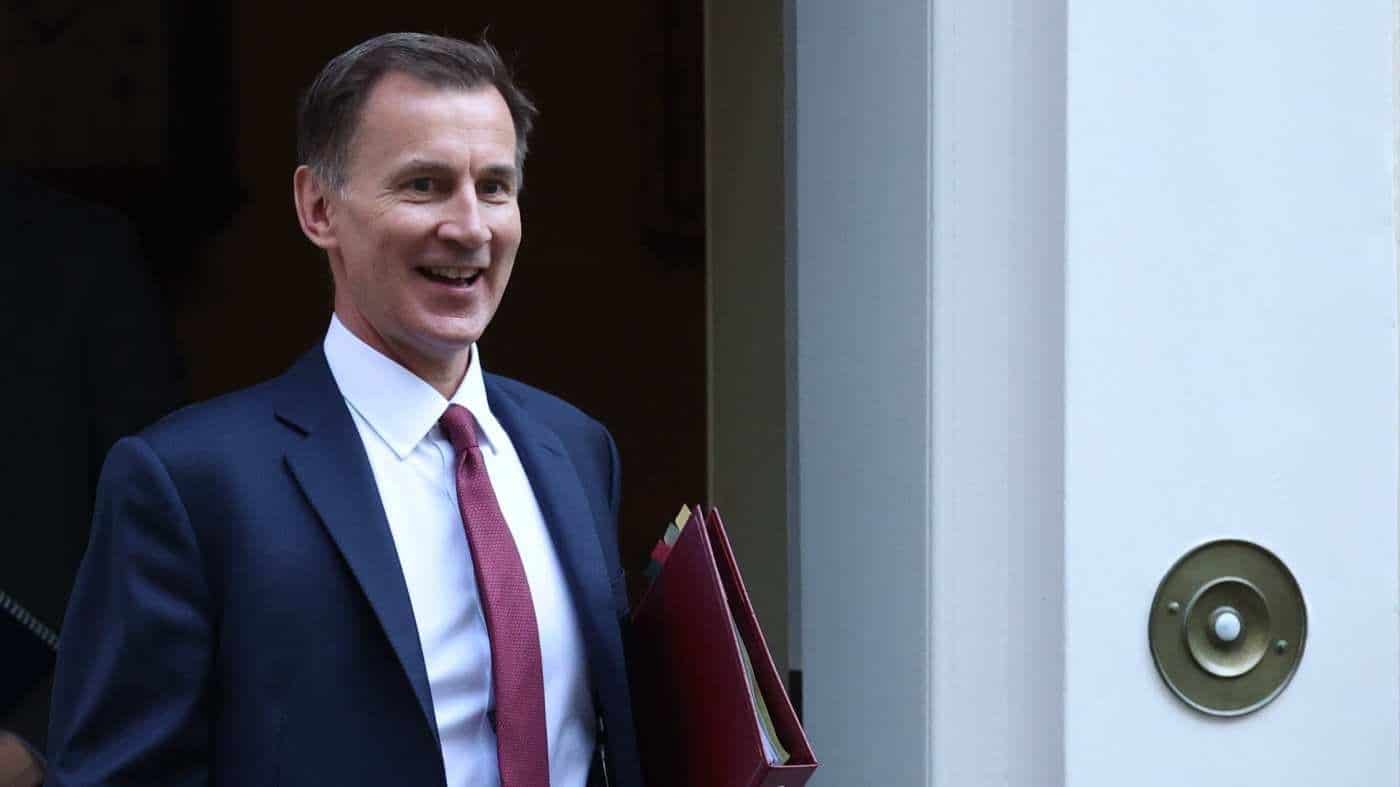New data showing lower than expected UK public sector borrowing in August has added to pressure on Chancellor Jeremy Hunt to announce tax cuts, providing potential fiscal room for giveaways ahead of the next general election.
Figures published Thursday by the Office for National Statistics revealed that public sector net borrowing hit £11.6 billion last month. While this was £3.5 billion higher than borrowing in August 2022, it came in below the £13 billion forecast set out by the Office for Budget Responsibility (OBR), the government’s independent fiscal watchdog.
In the first five months of the current 2022-23 fiscal year, total borrowing amounted to £69.6 billion. This represents a £19.3 billion increase versus the same period last year, but remains £11.4 billion under the OBR’s projection of £81 billion for the initial five months of the year, even after accounting for upward revisions to the body’s previous borrowing estimates for the first four months.
The better-than-expected numbers will come under intense scrutiny by Conservative MPs and ministers seeking substantial tax reductions under Prime Minister Liz Truss’ agenda focused on stimulating economic growth. Chancellor Hunt is scheduled to deliver his highly anticipated autumn budget statement on November 22nd, with a general election broadly expected sometime next year.
“August’s public finances continued the recent run of better than anticipated news on the fiscal position, providing the chancellor a bit more wiggle room for pre-election giveaways,” analyzed Ashley Webb, UK economist at Capital Economics.
Webb projects that actual spending increases or tax cuts will likely happen in the March 2024 budget, which he believes would give the Bank of England further justification to keep interest rates at elevated levels for longer than other major central banks like the Federal Reserve and European Central Bank.
Hunt struck a more cautious tone regarding the data on Thursday, however, stating: “These numbers show why after helping families in the pandemic we now need to balance the books. That becomes much easier when inflation is under control because higher inflation pushes up interest rates, so we need to stick to the plan to get it down.”
UK consumer prices rose less than expected in August, bringing the annual rate of inflation down to 6.7% from a 40-year high of 10.1% in July. The Bank of England’s Monetary Policy Committee is widely anticipated to announce its latest interest rate decision at midday Thursday, with financial markets betting on a 75 basis point hike.
With public services like the National Health Service facing deepening crisis amid soaring waiting lists, some economists argue there is limited scope for the Chancellor to fund substantial tax reductions by aggressively squeezing public spending.
“The ongoing increase in hospital waiting lists and the need to invest in public buildings points to little scope to fund tax cuts by squeezing spending,” said Samuel Tombs, chief UK economist at Pantheon Macroeconomics.
The ONS data highlighted buoyant tax receipts in August, which lifted the central government’s total receipts to £76.6 billion for the month. This represents a £3.1 billion increase versus August 2021, and comes in £1.2 billion above the OBR’s projections. Income tax and value-added tax receipts were both £1.2 billion higher than the prior August, reflecting resilient wage growth.
The revenue boost was partially offset by a rise in government expenditures, which hit £84.9 billion in August – up £4.3 billion from the same month last year but largely in line with the spending forecast by the OBR.
Finally, public sector net debt, reflecting total borrowing accumulated over time, was estimated at around 98.8% of the UK’s annual gross domestic product in August. This matches the highest debt burden since the early 1960s.



